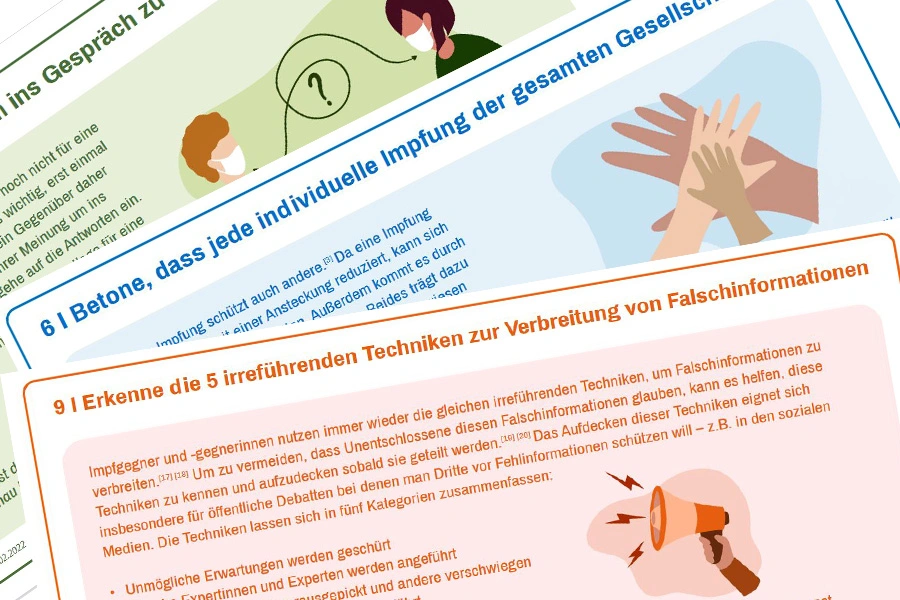"Relatively early on, after the first Corona vaccines became available, voices were raised calling for a kind of toolbox for vaccination communication," recalls Dr Philipp Schmid, postdoctoral researcher in the Jiu-Jitsu with Misinformation in the Age of Covid project at the University of Erfurt. Together with Cornelia Betsch, Professor of Health Communication, and doctoral student Frederike Taubert, the researcher was involved in the development of the conversation cards on the part of the University of Erfurt. "We, too, were concerned about giving people tips for communication based on evidence-based facts. That's why we've been collecting best practices from experts for a long time that have proven to be effective in communicating, informing and combating misinformation." The first result of this collection is a guidebook published in January 2021 to improve communication on Corona vaccines and reduce fears. However, to further highlight the essence of this guide and actually put the tips in the hands of the population, the research team considered how to further summarise the existing information. "With the conversation cards, we now have a kind of 'bundled flavour' of a communication strategy on corona vaccination," says Schmid. "The cards contain tips on three communication situations: Four green cards provide behavioural tips for general communication with doubters. Four blue cards offer substantive arguments for debates and seven red cards give advice on how to deal with confrontation and misinformation on social media."
The research team hopes that the conversation cards will help people seeking dialogue with vaccine doubters and opponents to have a respectful conversation, leading to the reduction of uncertainty, mutual understanding and trust, and new food for thought. The discussion cards can now be downloaded from the RKI website at (in German only): https://www.rki.de/DE/Content/Infekt/Impfen/ImpfungenAZ/COVID-19/Gespraechskarten_Impfen.pdf?__blob=publicationFile


